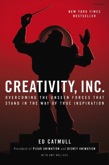Science fiction author Spider Robinson won the 1983 Hugo Award for Best Short Story with Melancholy Elephants. It’s a prescient take on an essential tension between creativity and commerce. Still worth reading. More worth contemplating.
Robinson explores where the boundaries of creativity might lie and what those boundaries might imply. There are tradeoffs to be made between the needs of artists and the interests of art as a whole. Those tradeoffs have artistic and economic consequences and striking the balance is by no means as self-evident as they might appear. Here’s the nub of his argument in his own words:
“I think it comes down to a kind of innate failure of mathematical intuition, common to most humans. We tend to confuse any sufficiently high number with infinity.”
…
For millions of years we looked at the ocean and said, ‘That is infinite. It will accept our garbage and waste forever.’ We looked at the sky and said, ‘That is infinite: it will hold an infinite amount of smoke.’ We like the idea of infinity. A problem with infinity in it is easily solved. How long can you pollute a planet infinitely large? Easy: forever. Stop thinking.”Then one day there are so many of us that the planet no longer seems infinitely large.
…
The ultimate bottleneck is this: that we have only five senses with which to apprehend art, and that is a finite number.…
“Artists have been deluding themselves for centuries with the notion that they create. In fact they do nothing of the sort. They discover. Inherent in the nature of reality are a number of combinations of musical tones that will be perceived as pleasing by a human central nervous system. For millennia we have been discovering them, implicit in the universe–and telling ourselves that we ‘created’ them. To create implies infinite possibility, to discover implies finite possibility. As a species I think we will react poorly to having our noses rubbed in the fact that we are discoverers and not creators.”
Go read the whole thing. It won’t take you long, But it will leave you thinking.


![Reblog this post [with Zemanta]](http://img.zemanta.com/reblog_e.png?x-id=7690ab24-71e1-45e4-a22b-30595ed8e0fc)
![Reblog this post [with Zemanta]](http://img.zemanta.com/reblog_e.png?x-id=491b6f47-c2e1-4066-b13c-83c3a5283f6b)